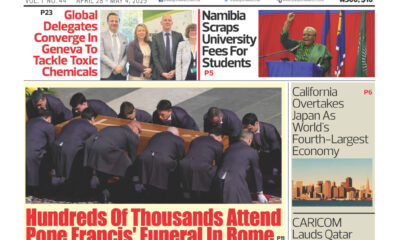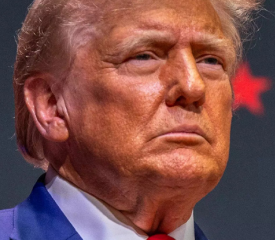News
Trump Administration Pauses Student Visa Interviews as It Weighs Expanded Social Media Vetting
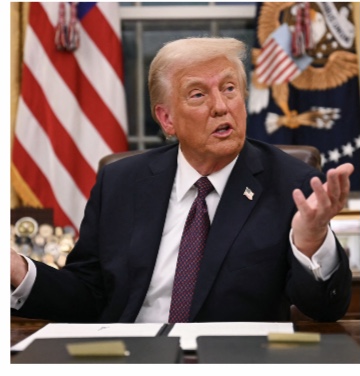
Trump Administration Pauses Student Visa Interviews as It Weighs Expanded Social Media Vetting
The Trump administration is considering a sweeping expansion of social media vetting for foreign students applying to study in the United States, according to a State Department cable obtained by POLITICO.
As part of the proposed changes, U.S. embassies and consular sections have been instructed to pause the scheduling of new interviews for student visa applicants. The directive, dated Tuesday and signed by Secretary of State Marco Rubio, appears to be a preparatory step for the potential new vetting requirements.
If implemented, the policy could significantly slow down the student visa process and deal a financial blow to U.S. universities that depend heavily on international students for revenue.
“Effective immediately, in preparation for an expansion of required social media screening and vetting, consular sections should not add any additional student or exchange visitor (F, M, and J) visa appointment capacity until further guidance is issued septel, which we anticipate in the coming days,” the cable states. (“Septel” is State Department shorthand for “separate telegram.”)
The administration had previously imposed limited social media screening, mainly targeting returning students who may have participated in protests against Israel’s actions in Gaza. The latest effort signals a more aggressive and broader application.
The cable does not explicitly state what content would trigger further scrutiny, but it references executive orders related to counterterrorism and combating antisemitism. That ambiguity has raised concerns among career State Department officials, who have privately expressed frustration over unclear guidelines in the past — particularly concerning students engaged in campus activism.
For instance, it remains uncertain whether a social media post displaying a Palestinian flag on a platform like X could subject a student to heightened vetting.
The administration has increasingly targeted universities, particularly elite institutions such as Harvard, accusing them of fostering liberal ideologies and tolerating antisemitism. These efforts coincide with broader immigration crackdowns that have affected foreign students.
State Department spokespeople did not immediately respond to requests for comment.
The news has drawn sharp criticism from the higher education community.
NAFSA: Association of International Educators, an advocacy group for international students, condemned the move. Its CEO, Fanta Aw, argued that the policy unjustly casts suspicion on students.
“The idea that embassies have the time, the capacity, and that taxpayer dollars are being spent this way is very problematic,” Aw said. “International students are not a threat to this country. If anything, they are an incredible asset.”
Meta, which owns Facebook, WhatsApp, and Instagram, declined to comment. Representatives from other platforms — including Google, Snap, X, TikTok, Discord, Bluesky, and Reddit — also did not respond to inquiries about the policy.
Diaspora
Trump’s Africa Policy: A Recipe for Disaster or Strategic Shift?
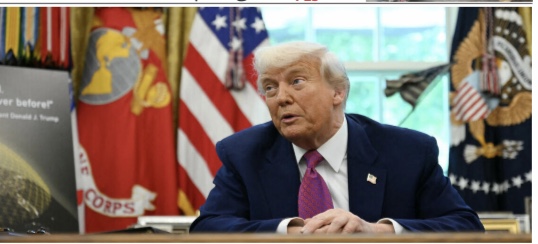
The United States has significantly reduced its aid to Africa, with a proposed $49.1 billion cut in foreign aid for 2026, targeting global health, education, and agriculture.
The African Development Fund faces a $555 million cut, while UN peacekeeping missions have been defunded.
This move comes as the Trump administration pushes for “burden sharing” with African armies, asking them to take on more defence responsibilities.
The cuts will severely impact humanitarian efforts, particularly in countries struggling with conflict, hunger, and natural disasters.
In the Democratic Republic of Congo, the US spent $910 million on food, water, sanitation, and shelter for over seven million displaced persons. Without this aid, 7.8 million people may lose food aid, and 2.3 million children risk facing deadly malnutrition.
The Sahel region, described as the “epicentre of terrorism” by US Africa Command chief Gen Michael Langley, faces significant security threats from jihadist groups.
These groups aim to gain access to West African coasts, finance operations through smuggling and human trafficking, and pose a risk to both African nations and US shores.
Langley has admitted that the current upsurge in militant attacks is “deeply concerning”.
The US is reining in its sub-Saharan military operations, with plans to reduce its 6,500-strong personnel deployment in Africa.
Some military installations, including the drone base in Agadez, Niger, have already been shut down.
Gen Langley emphasizes building African nations’ self-reliance to confront terrorism and insurgencies independently.
Data modelling suggests that the USAID cuts could push 5.7 million Africans into extreme poverty next year and reduce economic growth by $4.6 billion by 2030.
The cuts may also drive African nations closer to rival powers like China and Russia.
….
News
Air India Crash Investigation Takes New Turn as Cockpit Voice Recorder Recovered
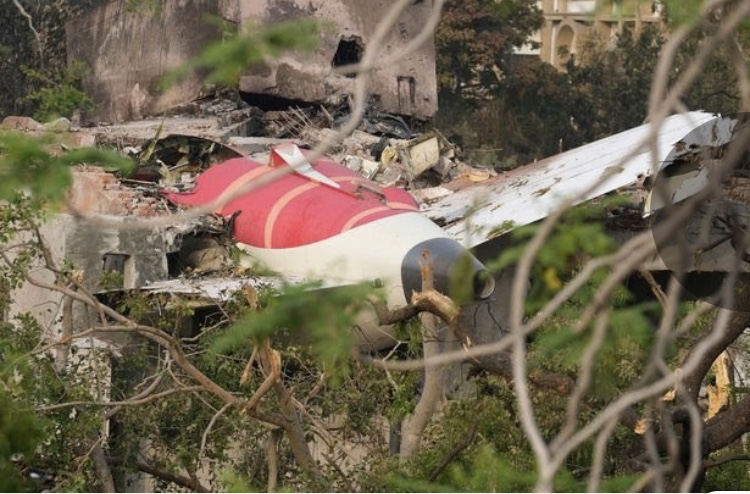
Investigators probing the deadly Air India crash that killed at least 270 people have recovered the cockpit voice recorder (CVR), a crucial step in determining the cause of the accident.
The CVR, along with the flight data recorder (FDR), forms the “black box” of the plane, which is designed to survive crashes and provide vital information for air crash investigations.
The London-bound Air India Boeing 787-8 Dreamliner crashed soon after taking off from Ahmedabad’s Sardar Vallabhbhai Patel International Airport last week, killing most of the 242 passengers and crew members on board.
The investigation is being led by India’s Aircraft Accident Investigation Bureau (AAIB), with assistance from teams from the US and the UK, including the US National Transportation Safety Board (NTSB).
The recovery of the CVR and FDR is a significant development in the investigation, as these devices capture crucial data and audio from the cockpit, including pilot conversations, alarms, and ambient sounds.
The analysis of these recorders will help experts reconstruct the flight’s final moments and determine the cause of the incident.
A high-level committee set up by the Indian government to examine the reasons behind the crash is expected to hold its first meeting soon.
The committee will submit a preliminary report within three months and propose new standard operating procedures (SOPs) to help prevent similar incidents in the future.
As the investigation continues, families of the victims are still grappling with the trauma and pain of their loss.
The process of identifying the victims has been slow and painstaking, with many bodies badly burned in the crash.
Over 90 victims have been identified through DNA matching, and 47 of the identified bodies have been sent to their families.
The former chief minister of Gujarat, Vijay Rupani, was among the identified victims. His funeral will be held with full state honors in Rajkot city.
The investigation into the Air India crash is ongoing, and officials are working to determine the cause of the accident and prevent similar incidents in the future.
Diaspora
Jamaica to Host 49th CARICOM Heads of Government Meetings

Jamaica will host the Forty-ninth (49th) Regular Meeting of the Conference of Heads of Government of the Caribbean Community (CARICOM) from July 6-8 in Montego Bay.
The Meeting will be held under the chairmanship of Dr. the Most Honourable Andrew Holness, Prime Minister of Jamaica.
Media partners interested in covering the Meeting are invited to apply for accreditation through the CARICOM registration link: https://register.caricom.org/view.php?id=46900.
The deadline for accreditation is Monday, June 23, 2025.
The Meeting will bring together regional leaders to discuss key issues affecting the Caribbean Community.
The Conference provides a platform for CARICOM Member States to share ideas, collaborate, and make decisions that promote the region’s development and prosperity.
The 49th Regular Meeting of the Conference of Heads of Government of CARICOM is expected to strengthen regional cooperation and pave the way for a more prosperous and sustainable future for the Caribbean Community.
-
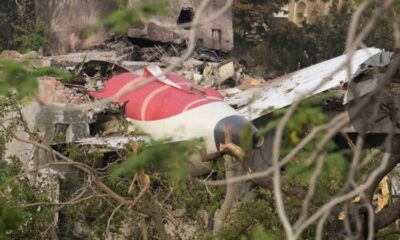
 News5 days ago
News5 days agoAir India Crash Investigation Takes New Turn as Cockpit Voice Recorder Recovered
-

 Opinion4 days ago
Opinion4 days agoWhy Israel Attacked Iran – Explaining Operation ‘Rising Lion’
-
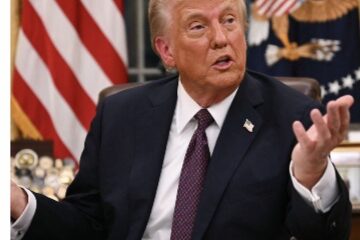
 Diaspora5 days ago
Diaspora5 days agoTrump Claims U.S. Control Over Iranian Airspace, Says Country’s Supreme Leader Will Not Be Killed “For Now”
-
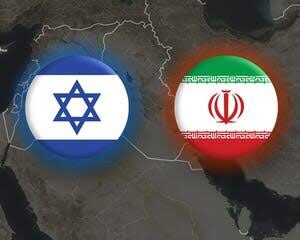
 News5 days ago
News5 days agoIran Warns Trump, Dares Him to Strike Country
-

 Tech4 days ago
Tech4 days agoMoove Set to Join Unicorn Club with $300m Funding
-
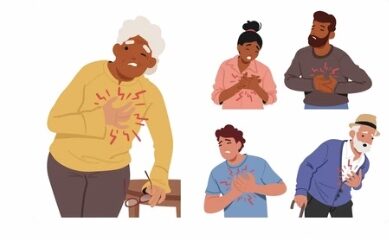
 Health5 days ago
Health5 days agoEarly Signs of Stroke You Should Watch Out For


